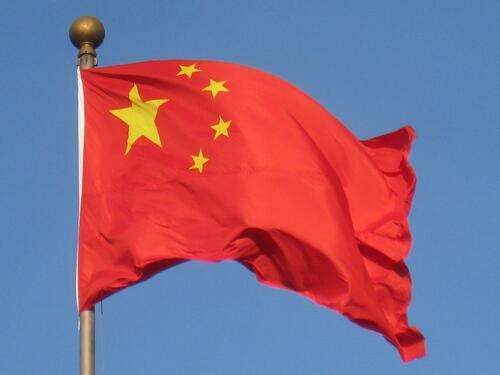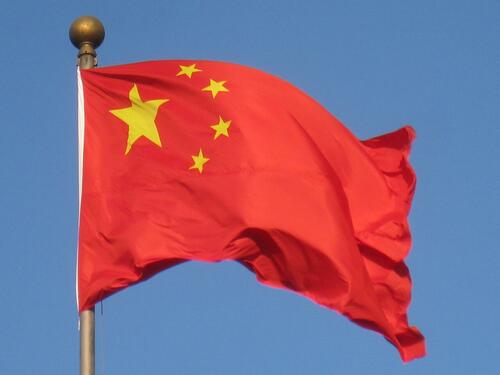Authored by Philip Wegmann via RealClear Wire,
A new report by Sen. Marco Rubio concludes that “a serious biosafety incident” in China most likely caused the coronavirus pandemic. But the exhaustive study, which took two years to complete and includes vast translations of original Chinese language source material, reaches another, perhaps more troubling, verdict: They knew.
The document obtained early by RealClearPolitics paints a picture of a Chinese Communist Party so eager to make advancements in bioscientific research that officials in Beijing willfully and repeatedly ignored known safety shortcomings at the Wuhan Institute of Virology as early as July 2019. Then, once the pandemic that would eventually kill 7 million people started, they launched a “cover-up.”
Chinese officials have consistently called the lab leak hypothesis a lie, insisting that the theory is politically motivated and has no scientific basis. The Rubio report details, however, that as early as February 2020 China had launched a comprehensive effort to strengthen biosafety measures at the Wuhan lab and facilities around the country through new, stricter regulations.
“Just as Beijing was denying the possibility that COVID-19 came from a lab on the world stage,” according to the document authored by the ranking member of the Senate Intelligence Committee, “it was warning its own officials of such risks and rolling out new measures to prevent lab accidents.” Additionally, as China downplayed the danger, or even took steps to hide it and its origin from the world, they were quietly moving to protect themselves.
Scientists associated with the People’s Liberation Army filed a patent for a COVID-19 vaccine in February of 2020. According to research methodology reviewed by Rubio, they began work four months earlier in November of 2019. Beijing did not alert the World Health Organization of the outbreak of a virus “of unknown etiology” until January of 2020.
“The implications are impossible to ignore,” Rubio said in a statement. “Beijing hid the truth. This report reinforces the need to hold the Chinese Communist Party accountable.”
The White House has repeatedly voiced frustration with China for its lack of transparency, and early in his tenure, President Biden ordered the director of national intelligence to conduct a 90-day inquiry into the origins of the virus. The intelligence community, however, was divided on the question when they turned in their findings in August of 2021, concluding that “a more definitive explanation” of the origin of the virus would “most likely” not be possible without cooperation from China.
The administration, as well as the World Health Organization, have repeatedly called on China to share health data from the early days of the pandemic that would further scientific investigation into the COVID-19 origins. The Chinese Centers for Disease Control and Prevention did upload some data related to samples taken at the nearby Wuhan wet market to the global virus database but removed it shortly afterward.
A classified report by the Department of Energy, which oversees numerous biological research labs in the U.S., concluded “with low confidence” in February of this year that the virus most likely came from the lab in Wuhan.
Until that assessment was made public, Republican lawmakers including Arkansas Sen. Tom Cotton were widely derided for spreading misinformation when they entertained the possibility that the pandemic could’ve begun anywhere other than the animal “wet market” in Wuhan. The Washington Post, for instance, reported in February of 2020 that Cotton was spreading a “debunked” and “fringe” “conspiracy theory.”
Behind the scenes last month, Chinese officials were implementing new directives governing research facilities with the stated goal being to “earnestly advance the biosecurity of the state, and further strengthen the biosafety management of laboratories.”
The effort to shore up safety standards was what some might call a whole-of-government response, extending even to the Chinese president himself. As China was suppressing online speculation about the origins of the virus, the report details how Xi Jinping “drew a clear link” in a February speech to the CCP Politburo “between the political security of the party-state, public health, and better regulation of biosafety and biosecurity.”
The Chinese Ministry of Science and Technology issued additional regulations for a second time in February to establish “a long-lasting mechanism to prevent and control biosafety risks.”
If Beijing believed that the virus had occurred naturally, rather than as the result of a lab leak, which they consistently denied, the report states “it is unclear why they took time to address biosafety conditions” at research laboratories studying coronaviruses.
The Rubio report speculates that the vast lack of transparency from Beijing during the early days of the pandemic until now stems from a simple cause: “extreme embarrassment.” To confirm that the virus emerged from a lab, the document concludes, would represent “existential crisis for the CCP and therefore must be avoided at all costs.”
Beijing could handle the fallout if the virus originated naturally because, after all, spillover from the failure to properly regulate wet markets “is a crisis that the CCP has weathered before.” According to the Rubio report, “there’s no reason to believe that they could not survive it again.”
But a once-in-a-century pandemic brought on by risky research, conducted in order to showcase Beijing’s advancements in the biosciences, is another matter.
“When one further considers that this state-run laboratory was built to showcase China’s growing scientific prowess, and at least some segment of its research involved state secrets,” the report concludes, “it is not hard to imagine the extreme embarrassment and sensitivity that such a scenario would elicit in CCP leaders, even if the accident had not precipitated a pandemic.”








